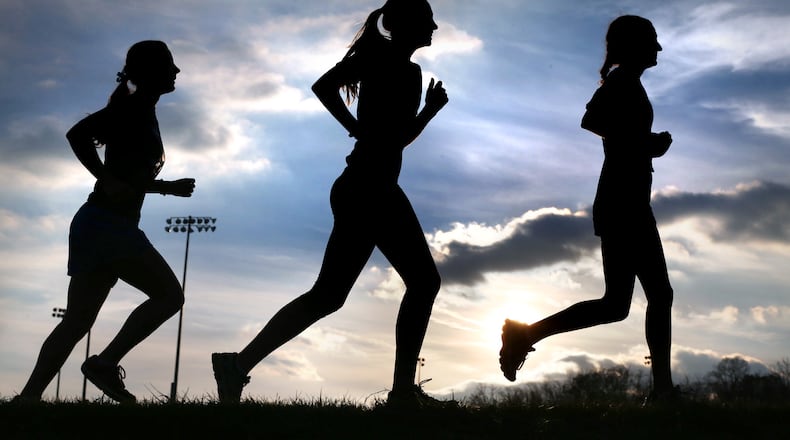Now that you've begun your training for the AJC Peachtree Road Race, you may be wondering what's actually happening to your body as you run. Well, while you're out pounding the pavement, your body is doing some pretty amazing things behind the scenes.
Science is cool, folks. And to prove it we've found these four geeky facts (drawing from various media reports and medical studies) on the biology behind running.
Breathe in, breathe out We're not talking about hyperventilation — these are the steady, rhythmic inhales and exhales you take as you run. Your body needs a lot of energy to prolong its endurance and may need up to 15 times more oxygen during a run or heavy cardio.
Your body has small quantities of some of this energy already stored up, in the form of glucose and adenosine triphosphate (ATP) which we produce from the foods we eat. But the heavy breathing you experience during a run provides the oxygen needed to create the extra energy for prolonged physical activity. The better shape you're in, the more efficient this creation becomes and the quicker you "settle in" to your run.
Brainstorms Ever gone out for a run and found yourself coming up with great ideas, solutions to problems or dreaming up your next big project? As you run, your body produces more endorphins, which help to increase alertness and improve our mood. Two studies done by the University of Illinois found that as we run, our bodies go into an "alpha wave" state which causes us to become hyper-focused or "in the zone." Our brains essentially become zen-like.
The studies concluded cognition and problem-solving were both improved nearly 10 percent with just 30 minutes of running.
Sweating is nature's exfoliant and disease fighter Sweating isn't simply helping to keep your body cool during your run, it's actually exfoliating and cleaning out your skin's pores. Many runners over time have found they have a natural glow and their skin looks less dingy. Some have even claimed it cleared up their acne.
It's true that sweat flushes out bad oils and other impurities while producing good oils to keep your skin and pores clean and clear. Running regularly helps keep this process in balance. Sweating can also prevent kidney stones by ridding the body of salts which build up over time. It can even help to prevent diseases, as sweat contains antimicrobial peptides which aid in the breaking down of bad bacteria and germs in our bodies.
Throw away those anti-aging creams You already know exercising regularly can prolong and improve your quality of life, but did you know it can actually make you look and feel younger, too? Some studies have suggested just three days of running for 30 minutes can turn the clock back by almost four years.
About the Author
Keep Reading
The Latest
Featured


